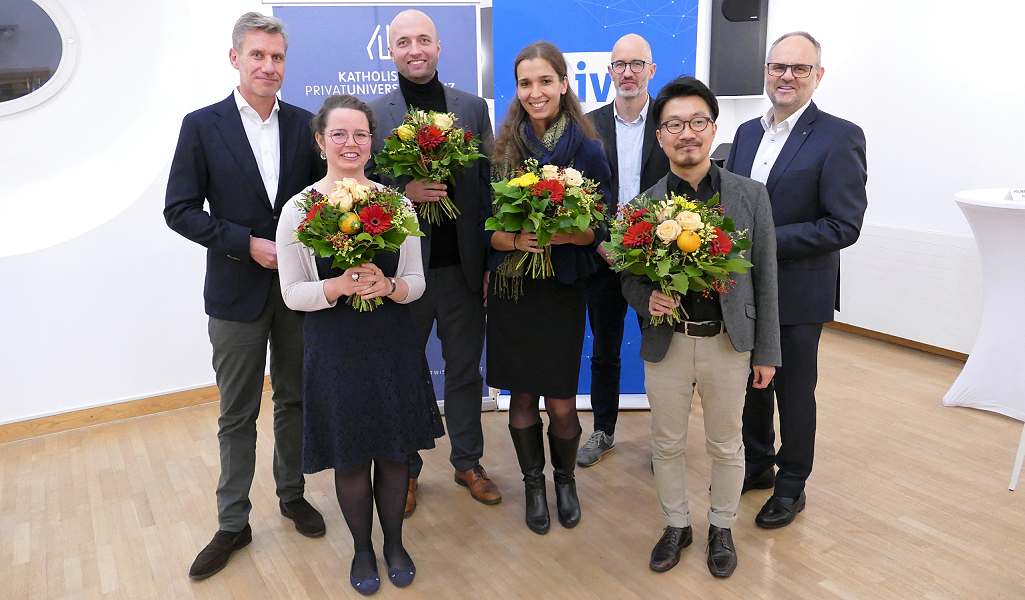Nils Kruse (Head of IBES of FHWien der WKW) received the Pater Schasching Prize for his dissertation on the question to what extent socially committed companies are more attractive employers.

Socially and ecologically sustainable actions strengthen companies in the competition for skilled workers and talents – if they are authentic. This is the conclusion of business ethicist Nils Kruse in his dissertation, for which the head of the Institute for Business Ethics and Sustainable Strategy (IBES) at FHWien der WKW received the Pater Johannes Schasching SJ Prize on November 10, 2022. This award for promoting dialogue between business, ethics and religion is presented by the Federation of Austrian Industry (IV) in cooperation with the Catholic Private University Linz (KU) and the Forum of Christian Managers (FCF) in Linz. In his dissertation, Nils Kruse investigates how sustainability measures influence the attractiveness of companies from the perspective of applicants and employees.
Sustainable action also provides economic benefits for companies
In its statement of reasons, the awarding committee attests Nils Kruse’s dissertation an “excellent scientific quality” and says it tackles a topic “that is of great relevance within business ethics (…) The global competition for the best talents has intensified and employees are more value-oriented and sensitive with regard to authentic communication.”
The award-winning dissertation is entitled “How Does Corporate Social Performance Affect (Prospective) Employees? An Experimental Investigation”. The researcher’s starting point is the observation that the “war for talents” plays a crucial role in corporate success. This is shown by discussions about the purpose of companies, criticism of the capitalist system and concerns about the global climate. Simultaneously, job seekers are attaching more and more importance to sustainability aspects. In this context, Nils Kruse develops decision-making tools that companies can use to determine whether and when assuming social responsibility pays off from an economic perspective.
Potentials and limitations of the business case for corporate social responsibility (CSR)
Nils Kruse shows how companies can combine economic success with social responsibility. He addresses several research gaps in three studies, which he summarizes in his dissertation: An experimental study in South Korea adds a global perspective to the discussion. Thus, a contribution to more geographic diversity is made – as a complement to the predominantly “westernized” empirical surveys. By focusing on “hypocritical CSR communication”, possible negative aspects of corporate social responsibility are brought into focus.
In his dissertation, Nils Kruse concludes that the details of CSR implementation are crucial. Only well-implemented diversity measures, authentically communicated transformation and sustainable initiatives pay off for companies. Correspondingly, greenwashing can have a detrimental effect in the “war for talents”.